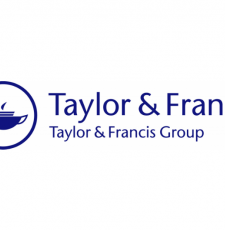
EIFL and our partner, the Kenya Library and Information Services Consortium (KLISC), submitted joint comments on Kenya’s draft policy framework for the regulation of collective management organizations (CMOs) in Kenya. CMOs are organizations that manage rights on behalf of authors, performing artists, producers and other rights owners.
EIFL and KLISC commend the Kenya Copyright Board (KECOBO) for their efforts in tackling problems of corruption and mismanagement by CMOs. The draft policy framework came about after a three-year forensic audit revealed serious risk of misappropriation of funds, fraudulent transactions, and poor corporate governance by three CMOs dealing with music and performers rights.
While libraries may need to acquire licences from a variety of CMOs during the course of their work, the CMO with which a library has the most dealings is usually a reproduction rights organization (RRO), that grants licences for the making of copies (photocopying and/or digital copies). However, RROs are missing from the draft policy framework, as well as the issue of the relationship between the CMO and its customers, such as libraries.
To address these shortcomings, EIFL and KLISC offered six recommendations.
Six recommendations
First, RROs should be included in the CMO policy framework. It is critically important that any RRO operating in Kenya is subject to the same scrutiny as other CMOs including best corporate practices, policy standards in key areas such as management of royalties, and new monitoring tools being developed by KEBOCO.
Second, the relationship between CMOs and licensees, such as libraries, should also be included. While the draft policy points out that CMOs have been accused of failing to fulfil their functions by both members (such as musicians and artists) and users of copyright works (such as businesses and libraries), the user element is missing from the draft policy.
Third, in addition to personnel costs, board expenses and subsistence payments, the overall CMO operating expenses should be reported to assist transparency, and encourage efficiency in the running of the organization. It would also enable helpful comparisons with CMO operations in other countries.
Fourth, transparency on tariff-setting is important to ensure that the tariffs being charged by the CMO are clear, objective and reasonable. This information would provide greater confidence that the licence fee being offered is fair, and that it provides value for money (for publicly funded institutions, such as libraries, this means public funds).
Fifth, we recommend a number of measures to strengthen governance of the board of directors: a board evaluation policy (to guide an assessment of board operations), and a charter (as a way of evaluating the board on an annual basis). In addition, board members should possess a broad mix of relevant skills, and a mechanism for vetting the integrity of nominees should be in place.
Finally, the mandate of the proposed risk policy should be broadened to include audits.
Libraries in Kenya have previously expressed concern about RRO operations, including issues such as the setting of licensing fees and distribution, unfair licensing practices, and an over-emphasis on enforcement actions. We hope that the new policy framework can address these concerns.
- Read EIFL and KLISC’s recommendations.
- EIFL supports IFLA comments on the draft policy framework.
SHARE / PRINT









